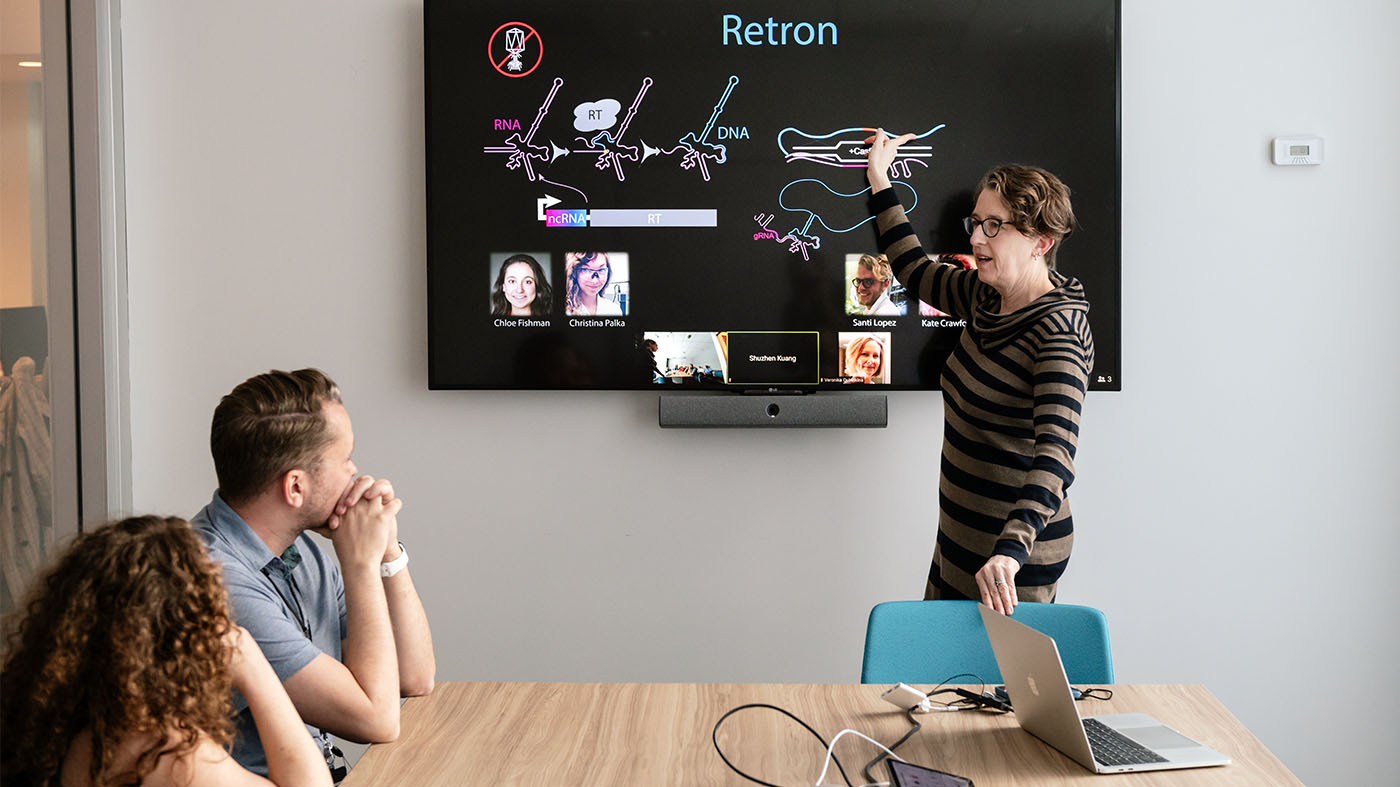Truly unlocking the human genome to create new and better medicines will require a more expansive understanding of genetic variants that underlie disease. The Keck Center for Machine-Guided Functional Genomics answers this need, embracing a hybrid computational-experimental strategy to discover causal variants throughout the genome—and especially in “noncoding” regions.

Whole-genome sequencing is now mainstream in medicine and research. But the potential of this technology to improve human health is stifled by a dearth of scientific knowledge on gene variants that cause, rather than simply being associated with, humanity's most devastating diseases.
One reason for this knowledge gap is the lack of tools for identifying causal genetic variants beyond the relatively small share of the genome that code for proteins. The noncoding genome—which constitutes 98 percent of our DNA—is still uncharted territory, even though it controls protein expression and harbors immense disease susceptibility.
To characterize noncoding genetic variants, the Keck Center for Machine-Guided Functional Genomics is developing a closed-loop platform that combines deep learning, experimental mutagenesis using “editrons” (which leverage retron and CRISPR technologies), and “SAMOSA” long-read genomic methods to understand genome physiology.
This powerful hybrid strategy enables our team to predict and validate causal noncoding variants in a high-throughput and iterative fashion. We seek to accelerate the discovery of causal variants in parts of the genome associated with developmental disorders of the heart and brain, and will deeply interrogate rare and newly discovered variants to expand our understanding of their function.
The Keck Center for Machine-Guided Functional Genomics, supported by the W. M. Keck Foundation, will convert several early-stage technologies developed by Gladstone scientists into a robust, open-source platform that the team will share freely with others to promote discovery science and disease research. The center’s ultimate goal is to foster more effective clinical diagnostics and therapeutics for genetic disorders.
Scientific Areas of Focus
- Artificial Intelligence
- Genome Editing
- Genome Physiology
- High-Throughput Experimentation
Project Leader
Members
Bruce Conklin, MD
Ryan Corces, PhD
Vijay Ramani, PhD
Catherine Tcheandjieu Gueliatcha, DVM, PhD
Christina Theodoris, MD, PhD
Seth Shipman, PhD
Deepak Srivastava, MD

